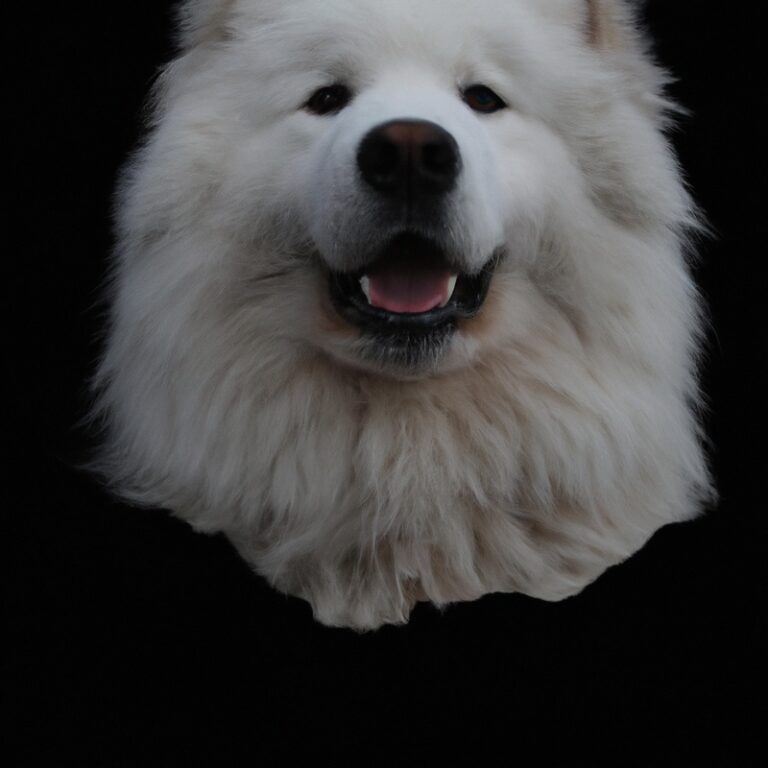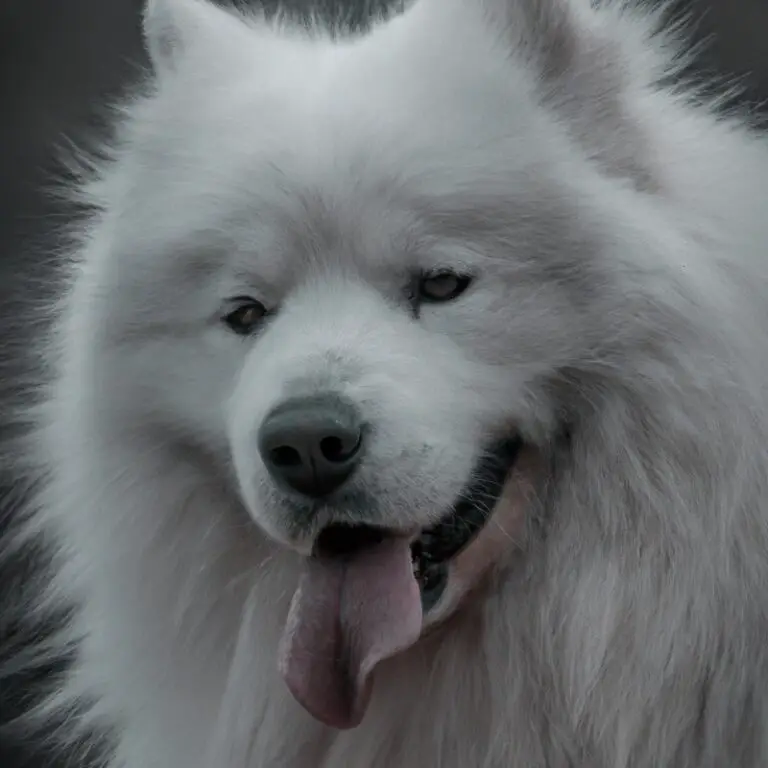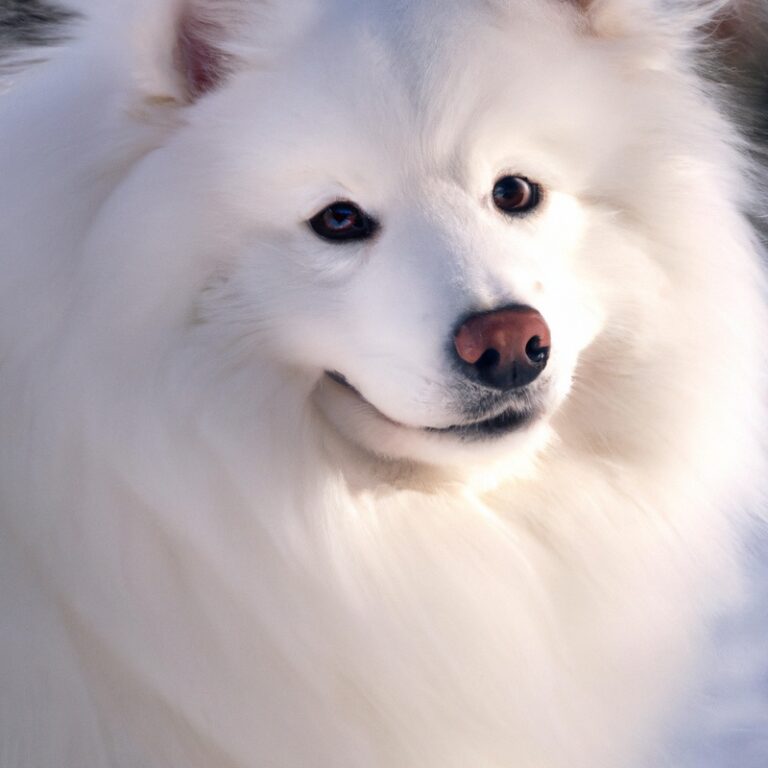How To Identify Early Signs Of Dental Problems In Samoyeds?
Key Takeaways:
- Monitor changes in your Samoyed’s appetite and chewing habits.
- Look out for bad breath and excessive drooling in your Samoyed.
- Regularly check your Samoyed’s teeth and gums for any abnormalities.
- Seek veterinary assistance if you notice any of these early signs of dental problems in your Samoyed.
Are you a proud owner of a fluffy and friendly Samoyed?
Well, then you know just how important it is to keep your furry companion happy and healthy.
One important aspect of their overall well-being often gets overlooked – their dental health.
Dental problems can wreak havoc on a Samoyed’s overall health if not detected and addressed early on.
But how can you identify the early signs of dental problems in Samoyeds?
In this article, I will share with you some common signs to lookout for, so you can prevent any potential issues from becoming a dental disaster.
Let’s dive in!
| Signs of Dental Problems | What to Look For |
| Bad breath | Foul odor coming from the mouth |
| Tartar buildup | Yellow or brown plaque on teeth |
| Red or swollen gums | Inflammation or bleeding of the gums |
| Difficulty chewing or eating | Pain while biting or avoiding certain types of food |
| Loose or missing teeth | Teeth that are loose or completely absent |
| Excessive drooling | Drooling more than usual |
What are dental problems in Samoyeds?
Common dental problems in Samoyeds
Common dental problems in Samoyeds include:
- Periodontal disease: This is one of the most common dental issues in Samoyeds and can lead to tooth loss if not treated promptly.
- Tooth decay: Samoyeds are prone to cavities, especially in their back molars. Regular dental care can help prevent this problem.
- Broken or fractured teeth: Samoyeds have strong jaws, but accidents or chewing on hard objects can result in broken or fractured teeth.
- Gum infections: Bacteria can cause infections in the gums, leading to pain, swelling, and bad breath. Regular dental cleanings are important for preventing these infections.
- Malocclusions: Some Samoyeds may have misaligned jaws or teeth, which can cause problems with eating and proper dental care.
To ensure your Samoyed’s dental health, regular dental check-ups, proper dental hygiene, and avoiding hard items to chew on are key.
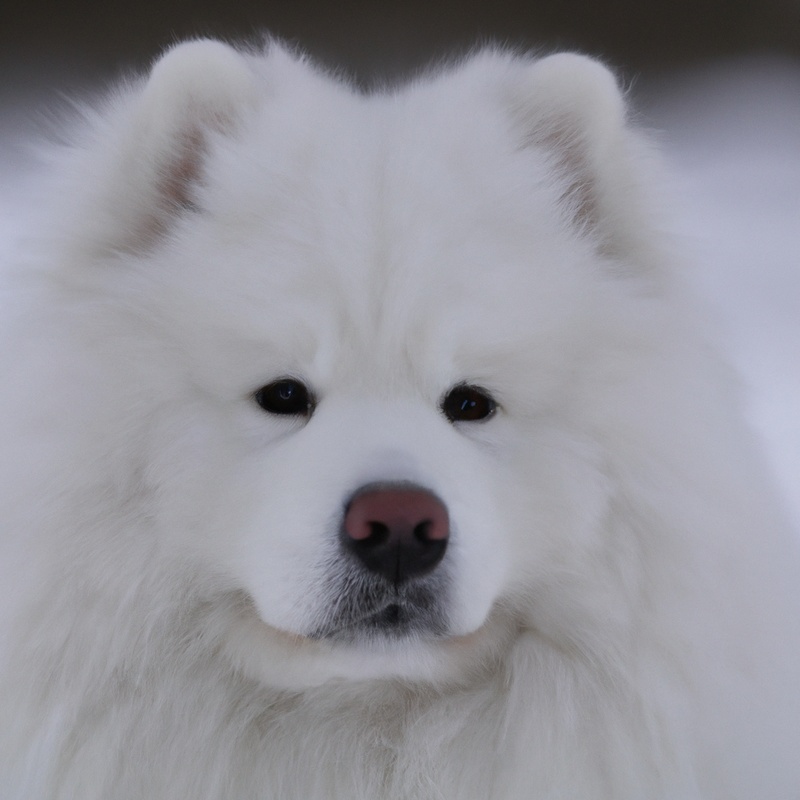
Impact of dental problems on Samoyeds’ overall health
Dental problems can have a significant impact on Samoyeds’ overall health. Poor dental hygiene can lead to plaque and tartar buildup, which can cause gum disease and tooth infections.
These issues can be painful for Samoyeds and may affect their ability to eat, play, and interact comfortably.
Additionally, dental problems can contribute to other health issues, such as heart and kidney problems. Regular dental care and professional cleanings are essential to maintain your Samoyed’s oral health and overall well-being.
Early signs of dental problems in Samoyeds
Changes in eating and chewing patterns
Changes in eating and chewing patterns can be indicators of dental problems in Samoyeds.
Pay attention if your Samoyed starts avoiding hard or crunchy food, preferring softer options.
They may also take longer to finish their meals or show signs of discomfort while chewing.
Constant pawing at the mouth or rubbing the face against furniture may suggest dental pain.
If you notice any of these changes, it’s important to have your Samoyed’s teeth checked by a veterinarian.
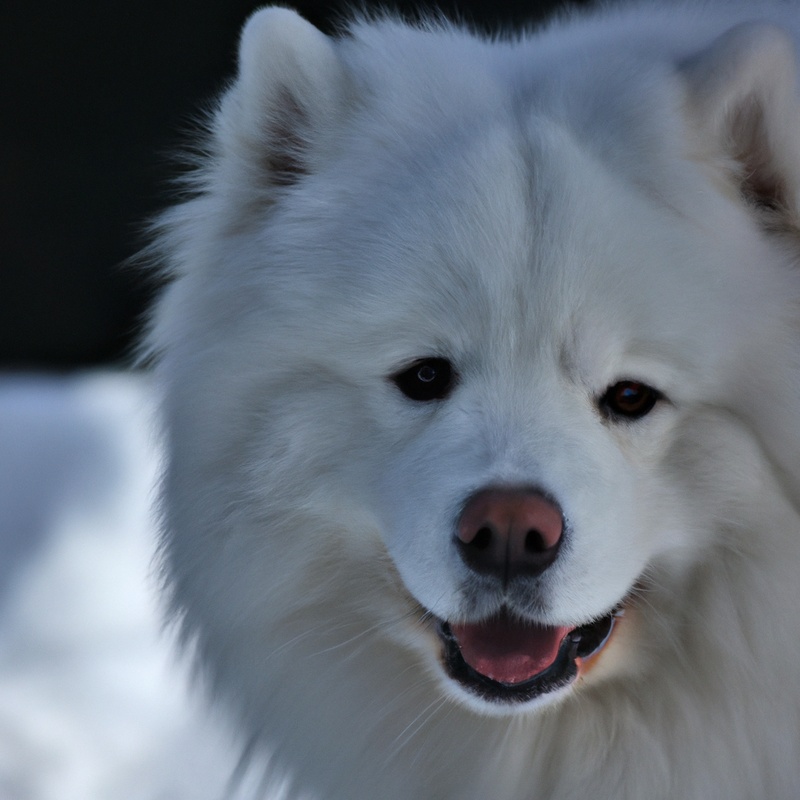
Bad breath (halitosis)
Bad breath, also known as halitosis, is a common dental problem in Samoyeds. It can be caused by various factors, such as poor oral hygiene, gum disease, or an underlying health issue.
If you notice that your Samoyed has persistent bad breath, it may be a sign of dental problems.
Other signs to look out for include yellow or brown teeth, bleeding gums, and difficulty eating. Regular brushing, dental check-ups, and a healthy diet can help prevent and address bad breath in Samoyeds.
Don’t ignore it and consult a veterinarian for proper treatment.
Tooth discoloration and tartar buildup
Tooth discoloration and tartar buildup are common dental problems in Samoyeds.
Discolored teeth can indicate decay or damage, while tartar buildup is caused by plaque that hardens on the teeth.
Both issues can lead to bad breath and gum disease if left untreated.
Regular brushing and professional dental cleanings are essential for preventing and managing these problems in your Samoyed’s oral health.
Additionally, providing dental chews and incorporating dental care into their routine can help maintain healthy teeth and gums.

Bleeding or swollen gums
Bleeding or swollen gums in your Samoyed can be a sign of dental problems. Pay attention if you notice blood when your dog chews or brushes their teeth.
Swollen gums that appear red or inflamed are also a cause for concern.
Bad breath and difficulty eating may accompany these symptoms. Regular tooth brushing, dental check-ups, and a balanced diet can help prevent these problems.
If you notice bleeding or swollen gums, it’s best to consult with your veterinarian for proper diagnosis and treatment.
Loose or missing teeth
Loose or missing teeth in Samoyeds can indicate dental problems.
If you notice that your Samoyed has loose or missing teeth, it could be a sign of gum disease, tooth decay, or dental trauma.
It is important to address these issues promptly to prevent further complications.
Regular dental check-ups and good oral hygiene practices, such as daily brushing and providing dental treats, can help maintain your Samoyed’s dental health.
Consulting with a veterinarian is always recommended for a proper diagnosis and treatment plan.
Importance of early detection and prevention
Effects of untreated dental problems
Untreated dental problems can have various negative effects on your Samoyed’s overall health and well-being.
It can lead to pain and discomfort, making them reluctant to eat or chew toys.
This can result in weight loss, malnutrition, and a weakened immune system.
Untreated dental issues can also contribute to bad breath, gum disease, and tooth loss.
Additionally, bacteria from the mouth can enter the bloodstream, potentially affecting the heart, kidneys, and other organs.
Regular dental care and early intervention are essential to prevent these complications and keep your furry friend happy and healthy.
Regular dental care routine for Samoyeds
It’s important to establish a regular dental care routine for your Samoyed.
Here’s what you can do:
- Brush their teeth: Use a dog-specific toothbrush and toothpaste to gently brush your Samoyed’s teeth at least 2-3 times a week.
- Provide dental chews: Give your Samoyed dental chews that help remove plaque and tartar buildup. Choose ones that are appropriate for their size and age.
- Schedule regular vet check-ups: Visit your veterinarian for regular dental examinations and professional cleanings. They can detect any dental issues and provide appropriate treatment.
- Watch their diet: Feed your Samoyed a balanced diet that supports their dental health. Avoid feeding them hard and sugary treats that can increase the risk of dental problems.
- Monitor their behavior: Keep an eye out for signs of dental issues such as bad breath, difficulty eating, excessive drooling, or swollen gums. Seek veterinary attention if necessary.
By establishing a regular dental care routine, you can help maintain your Samoyed’s oral health and prevent potential dental problems.
Professional dental cleanings and check-ups
Professional dental cleanings and check-ups are essential for maintaining your Samoyed’s oral health. During these visits to the veterinarian, your dog’s teeth will be thoroughly cleaned, removing any plaque or tartar buildup.
Additionally, the veterinarian will examine your dog’s teeth, gums, and mouth for any signs of dental problems such as tooth decay, gum disease, or oral infections.
Regular dental cleanings and check-ups can help prevent oral health issues and ensure that any problems are detected early on, leading to prompt treatment and a healthier smile for your furry friend.
Dietary considerations for maintaining dental health
To maintain dental health in Samoyeds, it is important to consider their diet.
Opt for high-quality dog food that promotes dental health, such as those with dental-specific formulas or kibble designed to reduce tartar buildup.
Additionally, incorporate dental treats or chews that help clean their teeth and gums.
Avoid feeding them sticky or sugary foods that can contribute to tooth decay.
Regularly brushing their teeth and scheduling professional dental cleanings also play a crucial role in preventing dental problems.
Frequently Asked Questions
What is the average age for dental problems to occur in Samoyeds?
Dental problems can occur in Samoyeds at any age, but the average age for these issues to arise is around 3 to 4 years old.
During this stage, your Samoyed’s adult teeth are fully developed, and dental problems like periodontal disease, tooth decay, and gum issues may start to manifest.
To ensure your Samoyed’s dental health, regular dental check-ups and cleanings are essential.
Look out for signs such as bad breath, swollen gums, and difficulty chewing, and consult your veterinarian promptly if you notice any concerning symptoms.
Can dental problems in Samoyeds be genetic?
Yes, dental problems in Samoyeds can be genetic.
Just like with humans, genetics play a role in a dog’s dental health.
Certain breeds, including Samoyeds, are more prone to dental issues due to genetic predisposition.
This can include malocclusion (misaligned teeth), crowded or missing teeth, and periodontal disease.
Regular dental care and check-ups are important to catch and address any genetic dental problems early on.
Are there any specific home remedies for Samoyeds’ dental problems?
Yes, there are a few home remedies that you can try to help maintain your Samoyed’s dental health.
One option is to regularly brush your dog’s teeth with a dog-friendly toothbrush and toothpaste.
You can also provide dental chews or toys that are specifically designed to promote dental hygiene.
Additionally, adding certain foods to their diet, such as crunchy vegetables or dental treats, can help clean their teeth naturally.
As always, it’s important to consult with your veterinarian for personalized advice and guidance.
How often should Samoyeds have professional dental cleanings?
Samoyeds should have professional dental cleanings at least once a year.
However, the frequency may vary depending on the individual dog’s oral health.
Some Samoyeds may require more regular cleanings, such as every six months, especially if they are prone to dental issues like tartar buildup or gum disease.
It is essential to consult with your veterinarian who can assess your Samoyed’s dental health and recommend the appropriate cleaning schedule.
Regular professional cleanings can help prevent dental problems and ensure your Samoyed’s oral hygiene is maintained.
Is anesthesia required for dental procedures in Samoyeds?
Yes, anesthesia is typically required for dental procedures in Samoyeds.
This is because dental procedures often involve invasive treatments such as tooth extractions or deep cleanings, which can be uncomfortable or painful for the dog.
Anesthesia ensures that the Samoyed is fully sedated and pain-free during the procedure, allowing the veterinarian to work safely and effectively.
Additionally, anesthesia helps to minimize the stress and anxiety that dogs may experience during dental treatments.
Final Verdict
Identifying early signs of dental problems in Samoyeds is crucial for their overall health and well-being.
Changes in eating and chewing patterns, bad breath, tooth discoloration, bleeding or swollen gums, and loose or missing teeth are important indicators to look out for.
By being proactive and addressing these signs promptly, we can prevent further complications and ensure our Samoyeds maintain optimal dental health.
Regular dental care, professional cleanings, and a proper diet are essential in preventing and tackling dental issues.
Remember, early detection leads to timely intervention and a lifetime of happy smiles for our furry friends.


